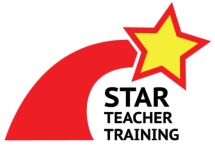There’s an easy EFL activity that changed my life as a preschool and primary teacher years ago. It made my lessons active, involving, and fun. It was flexible and didn’t require me spending valuable time at the photocopier. I could play it with any size class – I even once did it with 1,000 students at an event! The name of that game – Drill Sergeant.
Related: Increasing ESL Participation Rates
How to Play Drill Sergeant
If you’re familiar with Simon Says then you’re just a few steps from Drill Sergeant, which is even simpler.

First you need to introduce the target vocabulary and/or grammar and mime actions for each item. For example, you can flap your arms like wings for “bird” or peel an imaginary banana for “banana.” I like to do each action and ask students to guess which word it is. You can then have them mimic you.
Once students are pretty familiar with the actions then tell them to listen to you and do the actions (they can play standing or seated) as a class. You can say one of the words or use it in a sentence and watch the students react before saying the next.
Start slowly and then increase the speed between each action. The students all do their best to keep up. Stop the game once they start to tire out or lose interest after a couple minutes.
Related: Move Your Students with Kinesthetic Learning and TPR in ESL
You can use all sorts of language with this easy EFL activity, especially if you get a little creative and silly. Here’s just a short list:
- Animals: “Be a monkey/snake/kangaroo”
- Food/Fruit: “I like apples/I don’t like bananas”, “Eat some ice cream/pizza”
- Clothes: “Put on a hat/a T-shirt/a coat”
- Toys: “It’s a ball/bike”, “Play with a doll/kite.”
- Sports & Activities: “Play basketball/football/the piano/video games”, “watch TV/go to sleep”, “You’re dancing!/listening to music!
- Adjectives: “It’s big/small/tall/fast”
Extra Tips for this Easy EFL Activity
Keep it Simple: I like this game more than Simon Says because it’s simpler. Young kids get easily confused by the complicated rules and “Simon didn’t say!” stops the pace. The goal is to get students focused on learning English – not mastering complicated rules.
No Winners: There’s also no need to eliminate students for mistakes to find a “winner” with young learners. Kicking students out of a game stops them from participating in learning; it’s unnecessary and negative. Students will happily play just for the challenge, fun, and chance to move.
Don’t Be a Monkey: If you still want to make it a little more complicated then you can add the negative form for your target grammar, such as “Don’t be a monkey” or “I don’t like ice cream.” Students can cross their arms when they hear the negative form.
Use a Delay: Don’t make a common mistake that I see a lot in listening activities. Don’t give the answer as you speak! Lots of new teachers do the mime action as they say it or immediately after. They don’t give their students time to listen, think, and respond.
Instead, do the action after many or most of your students have responded as a way to confirm their answers. Otherwise they’ll just mimic your actions without having to listen.
Be Meaningful: Try to make your actions fit the context of the language. Take “chicken” for example. Don’t use the same action for the animal and also the food. Lots of teachers flap their arms for “chicken,” even when they’re teaching the food. Instead, try miming eating a drumstick.
Be Big: Young kids don’t do well with subtlety. Make your mime actions big and exaggerated so their easy for students to see what’s going on, especially if they’re stuck in the back. Remember also that the preschoolers haven’t developed a lot of dexterity, so small finger actions will be hard for them to mimic.
Looking for more simple listening activities? Check out:
- Settle and Succeed with Coloring Dictations
- Flashcard Listening Games for Large ESL Classes
- Simply Superb: Listen & Point ESL Activity
Share what topics you’re going to use with this game in the comments below & remember to like and share!






